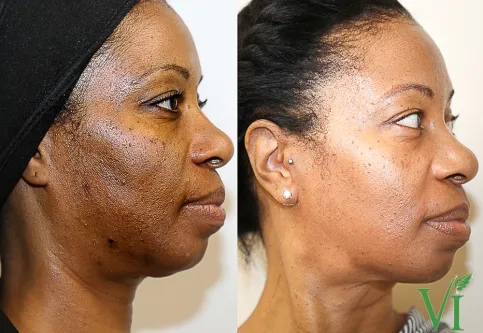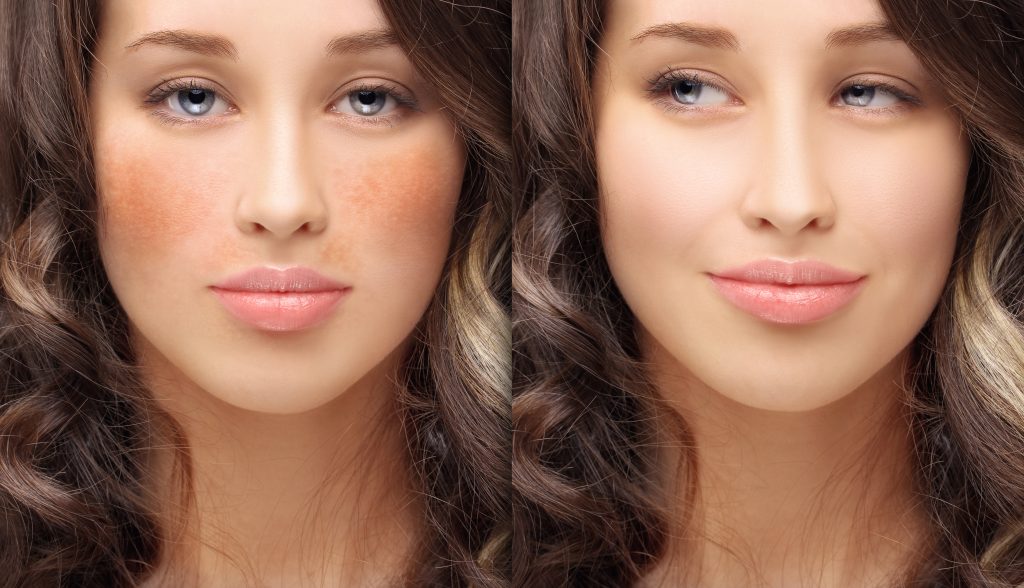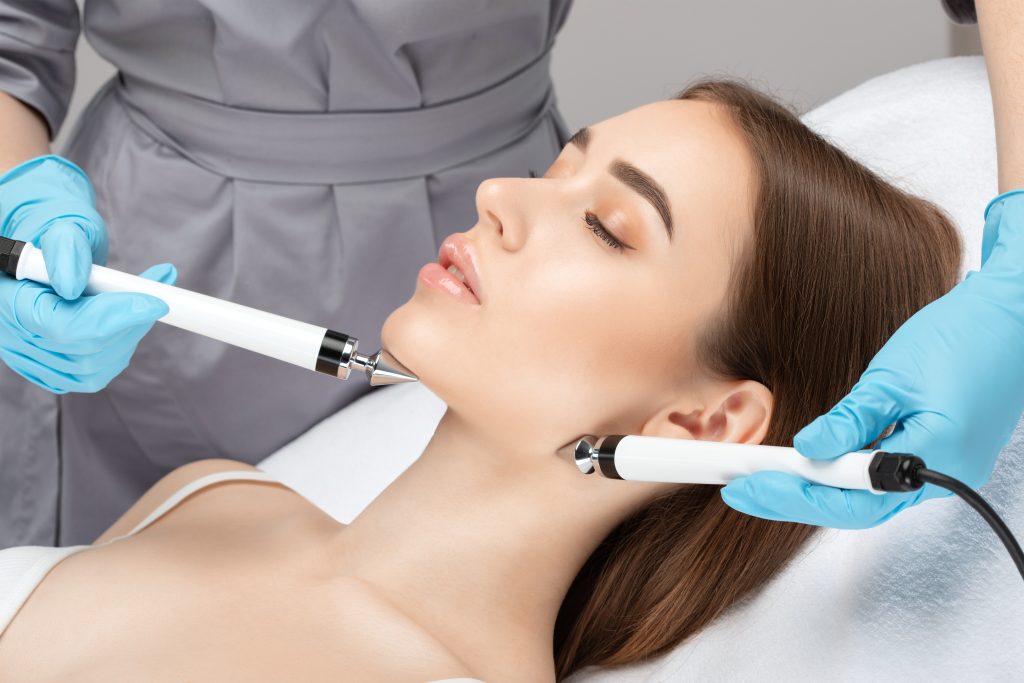HYPERPIGMENTATION
What is hyperpigmentation? Hyperpigmentation is a common condition that makes some areas of the skin darker than others. “Hyper” means more, and “pigment” means color. Hyperpigmentation can appear as brown, black, gray, red or pink spots or patches. The spots are sometimes called age spots, sun spots or liver spots.


What is the main cause of hyperpigmentation?
Hyperpigmentation is caused by an increase in melanin. Melanin is the natural pigment that gives our skin, hair and eyes their color. A number of factors can trigger an increase in melanin production, but the main ones are sun exposure, hormonal influences, age and skin injuries or inflammation.
How do you get rid of hyperpigmentation?
- Face acids.
- Retinoids.
- Chemical peel.
- Laser peel.
- IPL therapy.
- Microdermabrasion.
- Dermabrasion
- Lightening creams
What are the 3 types of hyperpigmentation?
The three main types include age spots, melasma, and post-inflammatory trauma.
Can hyperpigmentation be cured?
While usually treated topically at home, most hyperpigmentation also can be treated in-office with chemical peels; only certain mild cases can be treated with lasers, because light and inflammation can trigger more hyperpigmentation.
How long will it take for hyperpigmentation to fade?
Once what’s causing the dark spots or patches is found and stopped, fading can take time. A spot that is a few shades darker than your natural skin color will usually fade within 6 to 12 months. If the color lies deep in your skin, however, fading can take years.
Can hyperpigmentation go away permanently?
Hyperpigmentation can go away on its own, dependent on the cause, but it may take a long time to fade. Some cases of hyperpigmentation may never go away completely
What kind of hyperpigmentation is permanent?


Postinflammatory pigmentation is also called acquired melanosis. More severe injury results in postinflammatory hypopigmentation, which is usually permanent.
What is the fastest hyperpigmentation removal?
Dermabrasion may be a good option if you’re looking to decrease pigmentation at a faster rate than microdermabrasion. It works best for fairer skin. However, further hyperpigmentation as a result of the procedure can occur with all skin types. The new patches of hyperpigmentation may lighten after about eight weeks.
can be treated with lasers and lightening creams. The mode of treatment used will be dependent on the type of pigmentation, patient preference,..

